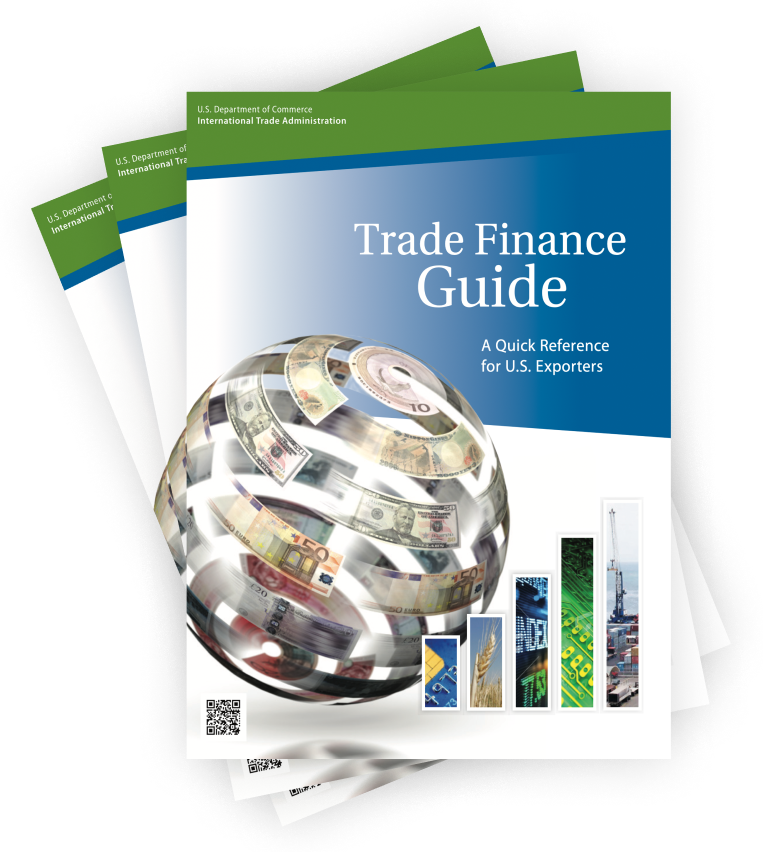The International Trade Blog International Sales & Marketing
Methods of Payment in International Trade: Consignment
On: November 18, 2019 | By:  David Noah |
5 min. read
David Noah |
5 min. read
 In an ideal world, a seller always gets paid before they ship their goods.
In an ideal world, a seller always gets paid before they ship their goods.
In an ideal world, a buyer always receive their order before they pay for their purchase.
Obviously, both the buyer and seller can't live in an ideal world. Their ideal worlds conflict. Most likely, neither party lives in an ideal world, so they need to work together to find the right payment term that will meet both their needs. This is particularly true in international trade.
There are five primary methods of payment in international trade that range from most to least secure. Of course, the most secure method for the exporter is the least secure method for the importer and vice versa. They key is striking the right balance for both sides. This article focuses on consignment.
The Advantages of Consignment
Consignment in international trade is a variation of the open account method of payment in which payment is sent to the exporter only after the goods have been sold by the foreign distributor to the end customer.
An international consignment transaction is based on a contractual arrangement in which the foreign distributor receives, manages and sells the goods for the exporter who retains title to the goods until they are sold. Payment to the exporter is required only for those items sold.
One of the common uses of consignment in exporting is the sale of heavy machinery and equipment because the foreign distributor generally needs floor models and inventory for sale. Goods not sold after an agreed upon period of time may be returned to the exporter at cost.

Exporting on consignment is very risky since the exporter is not guaranteed any payment and someone outside the exporter's control has actual possession of its inventory. However, selling on consignment can provide the exporter some great advantages that may not be obvious at first glance.
For example, consignment can help exporters compete on the basis of better availability and faster delivery of goods when they are stored near the end customer. It can also help exporters reduce the direct costs of storing and managing inventory, thereby making it possible to keep selling prices in the local market competitive.
However, though consignment can definitely enhance export competitiveness, exporters should keep in mind that the key to success in exporting on consignment and in getting paid is to partner with a reputable and trustworthy foreign distributor or third-party logistics provider.
How to Export on Consignment
If you believe you are ready to export on consignment, the first step is to select a reputable and trustworthy foreign distributor or a third-party logistics provider (3PL) who is based in a market of interest. The importing country should be commercially and politically secure.
A 3PL is a firm that provides logistics services with expertise in pick-up and delivery of shipments for exporters. A 3PL can help exporters reduce costs, mitigate risks, and manage expenses and time factors as well as to ensure that the consignment is shipped on the most economical and optimal route.
Consignment Case Study
A Midwest-based manufacturer of packaging equipment faced challenges in meeting market demand for quick delivery of its products to Asia. In addition, they needed a way to reduce the costs of storing and managing overseas inventory to keep prices competitive.
The U.S. manufacturer entered a consigned inventory arrangement with a Japanese 3PL who receives and stocks the goods in Japan and sells them to the end customers in Asia. The Japanese 3PL receives a commission for sales made and then sends the net proceeds to the U.S. manufacturer as the goods are sold.
The U.S. manufacturer's sales increased substantially under this arrangement because exporting on consignment helped deliver their products faster to the local market and kept prices competitive due to reduced direct costs of storing and managing overseas inventory.
Export Insurance and Finance Options
The next step is to ensure that you have access to financing and credit and that appropriate insurance is in place to cover consigned goods against loss or damage as well as to mitigate the risk of non-payment.
Exporting on consignment may require the use of one or more of these trade financing techniques:
Export Working Capital Financing
Exporters who sell on consignment in the global market need financing to ensure that they have access to working capital and credit while waiting for payment from the foreign distributor. Export working capital facilities, which are generally secured by personal guarantees, assets or receivables, can be structured to support export sales in the form of a loan or revolving line of credit.
Government-Guaranteed Export Working Capital Programs
The U.S. Small Business Administration and the U.S. Export-Import Bank offer programs that guarantee export working capital facilities granted by participating lenders to U.S. exporters. With those programs, U.S. exporters can obtain needed facilities from commercial lenders when financing is otherwise not available or when their borrowing capacity needs to be increased.
Export Credit Insurance
Export credit insurance provides protection against commercial losses such as default, insolvency and bankruptcy and political losses such as war, nationalization and currency inconvertibility. It gives the exporter conditional assurance that payment will be made if the foreign distributor is unable to pay. Appropriate insurance should be obtained to cover consigned goods in transit or in possession of a foreign distributor.
- Cash in Advance
- Letters of Credit
- Documentary Collection
- Open Account
- Learn about all five options in the free whitepaper, Trade Finance Guide: A Quick Reference for U.S. Exporters
Like what you read? Join thousands of exporters and importers and subscribe to the International Trade Blog to get the latest news and tips for exporters and importers delivered to your inbox.
This article is taken in large part from the Trade Finance Guide: A Quick Reference for U.S. Exporters, which you can download for free by clicking the link below.

About the Author: David Noah
As president of Shipping Solutions, I've helped thousands of exporters more efficiently create accurate export documents and stay compliant with import-export regulations. Our Shipping Solutions software eliminates redundant data entry, which allows you to create your export paperwork up to five-times faster than using templates and reduces the chances of making the types of errors that could slow down your shipments and make it more difficult to get paid. I frequently write and speak on export documentation, regulations and compliance issues.

